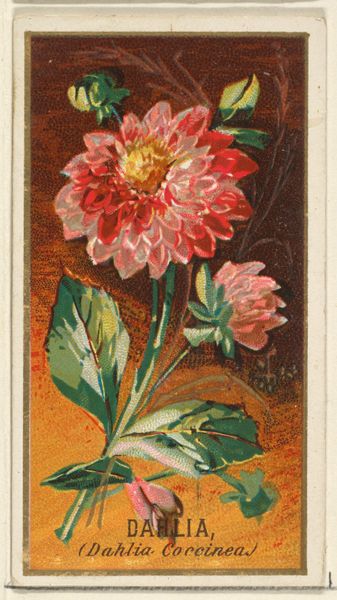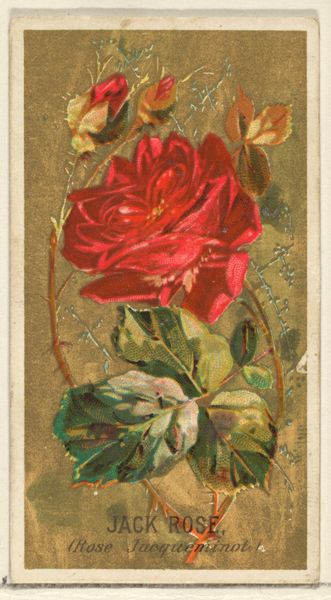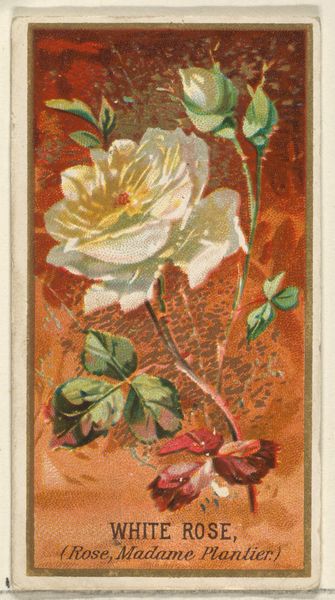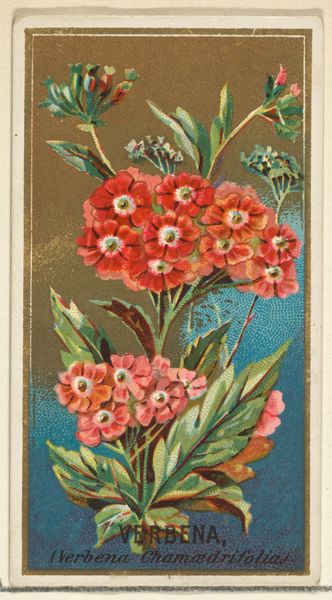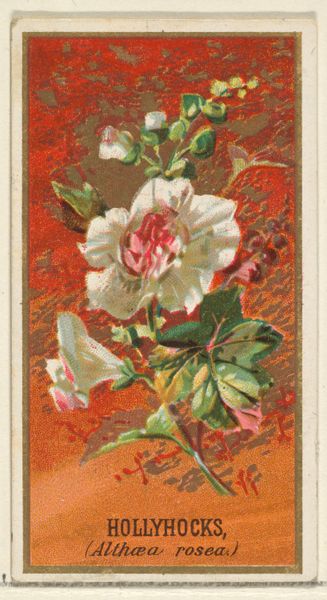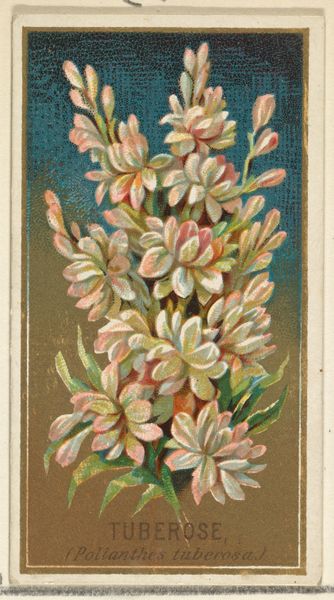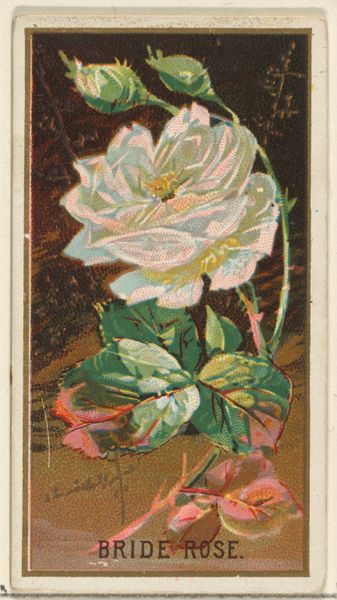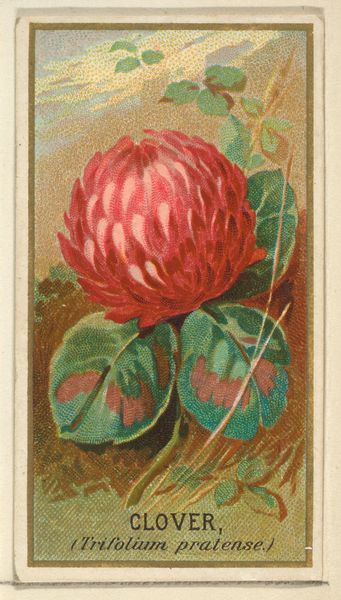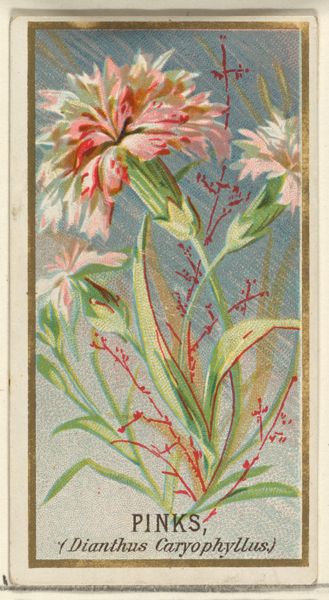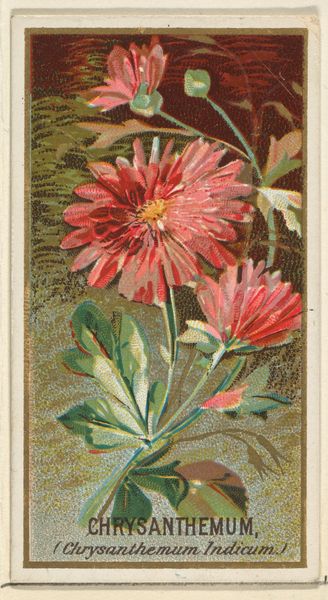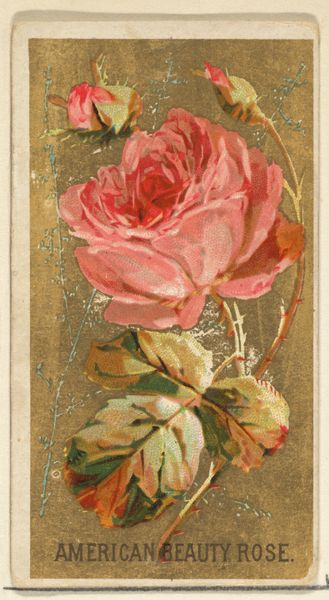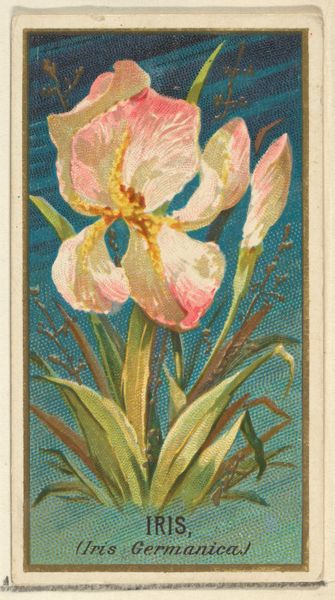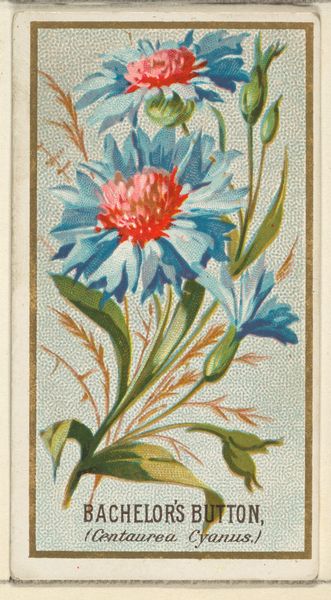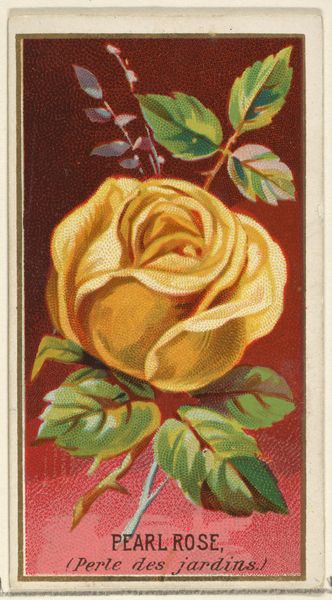
Peony (Paeonia Officinatis), from the Flowers series for Old Judge Cigarettes 1890
0:00
0:00
drawing, print
#
drawing
#
unusual home photography
#
egg art
# print
#
handmade artwork painting
#
oil painting
#
tile art
#
acrylic on canvas
#
coffee painting
#
earthenware
#
watercolour illustration
#
watercolor
Dimensions: sheet: 2 3/4 x 1 1/2 in. (7 x 3.8 cm)
Copyright: Public Domain
Curator: Right, let’s take a moment to appreciate this chromolithograph from around 1890. It's called "Peony (Paeonia Officinatis), from the Flowers series for Old Judge Cigarettes" by Goodwin & Company. Editor: Oh, it’s…vibrant! Such a striking red against that deep blue background. It’s more punchy than delicate, really. Curator: Chromolithography allowed for mass production and these vibrant colors made them ideal for advertisements. Imagine, tiny masterpieces given away with cigarettes! Editor: Cigarettes, right. Well, I suppose that explains the subject matter. These promotional cards functioned as miniature collectible art, intended for display or trade. But let's talk about the technique; the level of detail in the flower’s petals suggests a multi-layered process, which involved individual stones for each color printed. Curator: Exactly! And don’t you think the image of the peony itself speaks to the ephemeral nature of beauty? Something enjoyed briefly, then discarded like… well, like a cigarette butt. Editor: Hmmm, I see your point! The transience is implied but it can also relate to social and economic shifts. Chromolithography democratized access to images; suddenly art, or at least representations of it, weren't exclusive to the wealthy elite. These were mass-produced, meant for anyone who bought cigarettes! Curator: It’s bittersweet, isn’t it? This explosion of accessible art intertwined with a product we now understand to be so harmful. Perhaps that tension is part of what makes it so captivating. Editor: I think I have gained an understanding about how images worked for brands in those times and why some prints still matter even today. Curator: Exactly and seeing the collision of commerce and art gives one a new perspective of seeing these things with wonder.
Comments
No comments
Be the first to comment and join the conversation on the ultimate creative platform.
